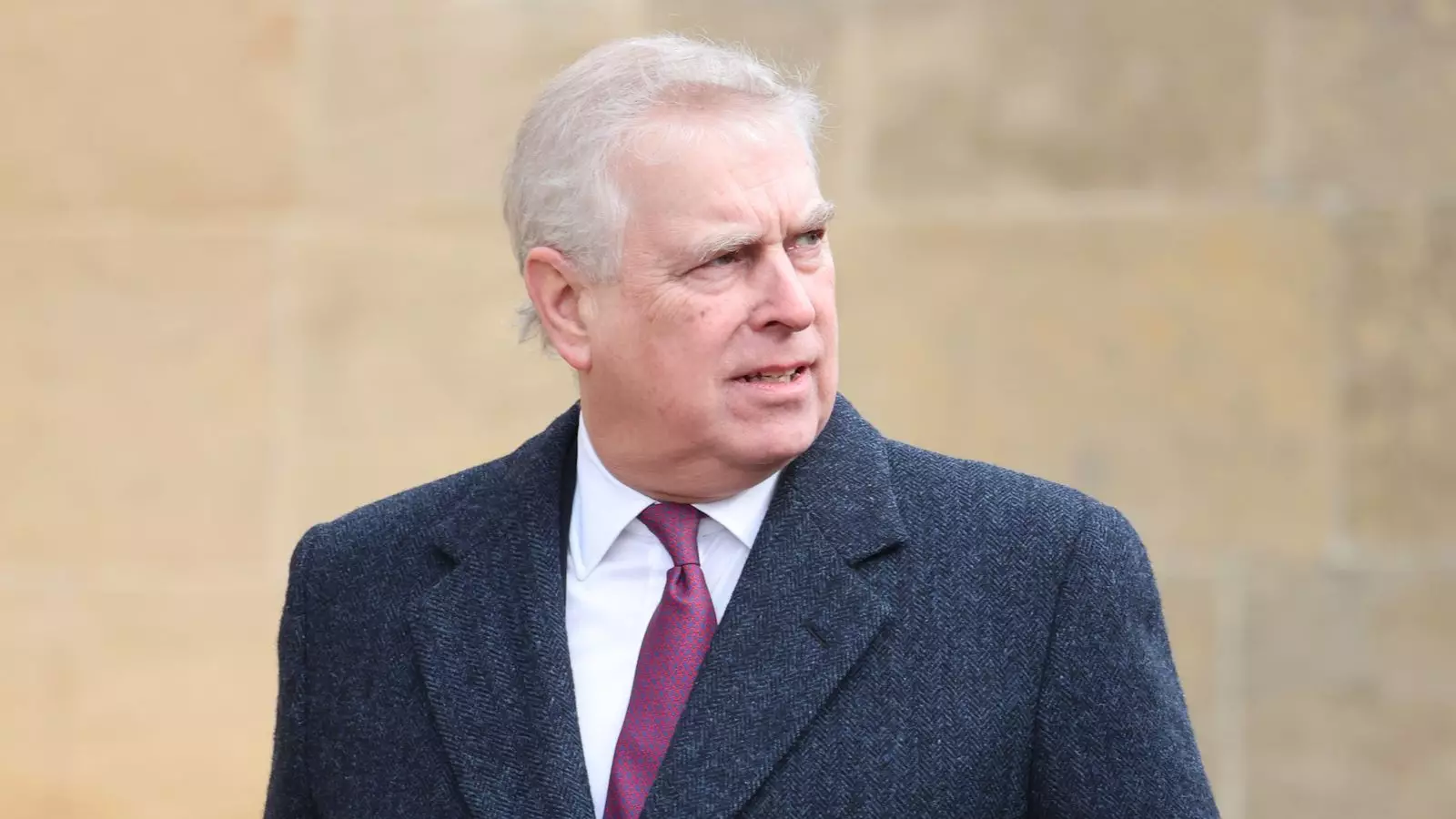Recently, Prince Andrew, the Duke of York, made headlines with a public statement indicating that he has terminated all interactions with a businessman suspected of links to Chinese espionage. This revelation follows a series of alarming government concerns that have placed the Duke’s associations under scrutiny. The 64-year-old royal insists that the pair never communicated about any “sensitive” subjects, and his distancing from the individual signifies more than just a mere break in contact; it reflects the delicate interplay between the British royal family, governmental advisories, and national security.
In his statement, Andrew emphasized the advice he received from Her Majesty’s Government (HMG), highlighting the importance of adhering to protocols when national security is at stake. Yet, one can’t help but wonder about the extent of his connections and the implications of mingling with individuals who pose a security threat. The situation spirals deeper when we consider the identity of the unnamed businessman, a figure who was notably invited to one of Andrew’s birthday celebrations and allegedly involved in discussions about engaging with Chinese investors.
The businessman, referred to as “H6,” found himself barred from entering the UK due to suspicions surrounding his activities that allegedly supported Chinese Communist Party interests. The Home Office described him as having engaged in “covert and deceptive” endeavors, a characterization he contests as being unlawful. This contradiction raises pertinent questions about the reliability of information and the mechanisms of due process in matters of national security. Furthermore, the Chinese embassy’s rebuttal of the allegations underlines the tension that often arises between diplomatic relations and accusations of espionage.
In the context of espionage fears, the recent ruling by the Special Immigration Appeals Commission (SIAC) to uphold the exclusion of H6 from the UK further complicates the narrative surrounding Prince Andrew. The legal backing for this decision illustrates that the implications of such relationships are far-reaching, potentially placing the royal family under significant scrutiny.
Prince Andrew’s past includes his tenure as a UK trade ambassador from 2001 to 2011, during which he cultivated numerous international connections. However, the fallout from prior controversial associations, particularly with the notorious Jeffrey Epstein, has severely blemished his public image. Since stepping back from royal duties in 2019, Andrew has been attempting to navigate a landscape littered with allegations and public distrust. The stripping of his military titles and royal patronages in 2022 further diminishes the stature he once held, instigating speculations about the sustainability of his position within the royal hierarchy.
The decision from SIAC to highlight Andrew’s vulnerability in the face of his relationship with H6 offers a harrowing glimpse into the character judgment being applied when evaluating royal connections. The exposure of internal communications, which suggested that the Duke may act out of desperation, fosters a concerning perception of the royal’s agency in maintaining his dignity and integrity amid controversy.
This incident encapsulates a broader narrative concerning the responsibilities of public figures, especially those in positions within the monarchy, to uphold national security and ethical standards. Public figures, including royals, often find themselves walking a tightrope, balancing personal relationships with their duties to the state and its citizens. The ongoing concerns over espionage and external influence have prompted discussions on how these relationships could potentially compromise national interests.
The case of Prince Andrew and his association with a businessman accused of espionage raises significant questions about accountability, the boundaries of personal relationships, and the implications of these ties on national security. As the Duke navigates this turbulent period, the royal family must contend with the complexities of modern diplomacy, security concerns, and the enduring consequences of past associations. The delicate nature of these interactions speaks volumes about the ongoing relationship between ceremonial roles and real-world implications in a rapidly evolving global landscape.


Leave a Reply